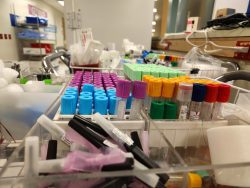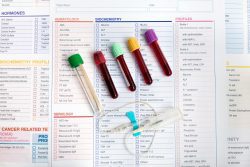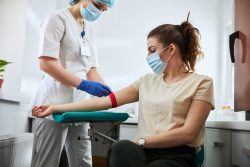Navigating the Veins: Your Guide to Phlebotomy Training in Mesa, AZ
Welcome to the world of phlebotomy! Have you ever wondered about the skilled individuals who draw blood with precision and ease? Phlebotomists play a crucial role in healthcare, facilitating diagnostic procedures and ensuring patient comfort. In this blog, we’ll explore the journey of phlebotomy training, from classroom education to hands-on experience.
Phlebotomy is both an art and a science. Proper training is essential to mastering the techniques involved in venipuncture and blood collection. During training, aspiring phlebotomists learn about anatomy, physiology, infection control, and laboratory safety. They also develop valuable communication skills to interact with patients effectively.
Phlebotomy training typically begins in the classroom, where students delve into the theoretical aspects of the practice. They learn about the circulatory system, blood composition, and the different types of blood specimens. Classroom education provides the foundation for understanding the principles behind phlebotomy procedures.
One of the highlights of phlebotomy training is the hands-on experience. Students have the opportunity to practice venipuncture techniques on simulation arms or fellow classmates under the guidance of experienced instructors. This practical training allows them to develop confidence and proficiency in blood collection procedures.
To further hone their skills, phlebotomy students often participate in clinical externships. During these placements, they work alongside experienced phlebotomists in healthcare settings such as hospitals, clinics, and laboratories. Externships provide real-world exposure to diverse patient populations and medical scenarios.
Upon completing their training program, aspiring phlebotomists may choose to pursue certification through professional organizations such as the National Healthcareer Association (NHA), American Medical Technologists (AMT), National Healthcare Certification Organization (NHCO), or the American Society for Clinical Pathology (ASCP). Certification demonstrates competency and commitment to high standards of practice. Some states also require phlebotomists to obtain licensure before practicing independently.
Phlebotomy offers a variety of career opportunities in the healthcare industry. Graduates of phlebotomy training programs may find employment in hospitals, diagnostic laboratories, blood banks, physician offices, and other healthcare settings. With the demand for skilled phlebotomists on the rise, the field offers stability and growth potential.
Phlebotomy training is a rewarding journey that equips individuals with the knowledge and skills to excel in a vital healthcare role. From classroom learning to hands-on practice, aspiring phlebotomists undergo comprehensive training to ensure safe and efficient blood collection. If you’re passionate about helping others and enjoy working in a dynamic healthcare environment, phlebotomy may be the perfect career path for you.




